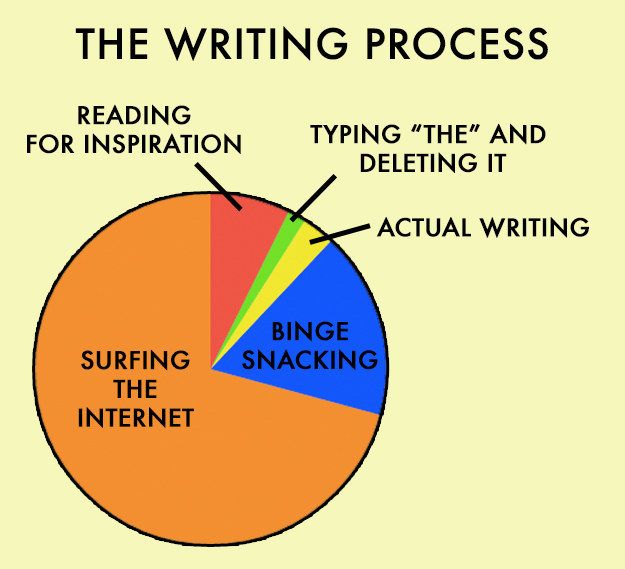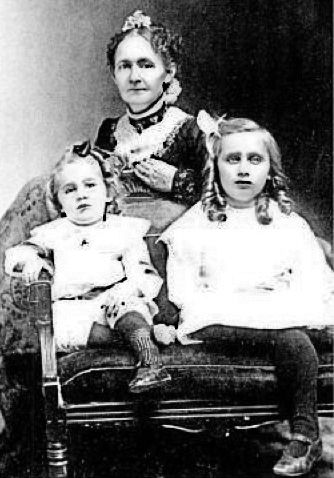Writing workshop volume 5: Getting organized and actually writing
This volume is about organizing your life around writing. If you can't do that, perhaps you can find a way to squeeze in a bit of time to write regularly, and actually write.
The previous volumes in this series are Volume 1, The Beginning; Volume 2, Exploring voice in writing; Volume 3: Say what you want to say, and Volume 4: Serial fiction projects on Steemit. Each post provides some ideas and inspiration, invites #discussion about a fiction writing topic and provides a writing exercise and encouragement to share your work.
Being a writer who writes
It's very easy to be a writer who doesn't write. In fact it is the easiest occupation in the world. Researchers have studied this and found that to be an indisputable fact. (I kid!)
Writing is that thing you're going to do when the burdens of life ease up. You know you can do it, and you have every intention of doing it, but there's always food to cook and laundry to fold, papers to shuffle, and another season of Orange is the New Black to watch - or whatever it is that you are currently binge watching.
I'll share my little story of how I got writing again after using every excuse in the book (none of which felt like excuses at the time), and maybe something in my story will resonate with you.
I have been a writer all my life. I wrote my first full-length story when I was about 10 years old. It is long since lost, but it was about space travel, and I'm convinced to this day that it's the best story I will ever write. Or, at least that it was pretty darn good for a 10 year-old. Many decades have passed since that story, and I have written many many stories, because I'm a writer, you see. And I have always planned to get serious about this thing, get organized, and get my work out there to be published.
In college I started out as an artist. You wouldn't think that was an excuse to not write, but looking back I think it was. I loved to paint and play in clay and do calligraphy, and none of those things required the deep soul searching that writing seems to require sometimes. With clay, you just start shaping what's in front of you. With paint, you can start painting a subject - a bowl or a human figure - and you have created something. With calligraphy, you can transcribe things, such as beautiful poems. And BAM. You made art.
This is not to say art is easy. It's not. And it's not to say that I was an artist. I was not. I failed. It was not my calling. Part way through college, I realized that my true gift was writing. So I self-designed a major in writing and illustration to tie it all together, and wrote and illustrated a children's book, which remains unpublished.
Then I got my master's degree in writing. And that's when things really fell apart, because there are no jobs for fiction writers. I quickly became a technical writer, and proceeded to create a long career in writing. Now and then I woke up from my stupor, wrote stories and was absolutely certain I needed to do more of that but I also got married and had three beautiful children and had a home to manage and baseball and softball games to watch.
Let's all remember Grandma Moses
Over the years, I have consoled myself that Grandma Moses didn't really get started until she was well over 70. But that's just another excuse! And it's not a great model to follow. Yes, she is posthumously very wealthy, but what kind of goal is that? Not everyone even lives to the age of 70.
Start now
So, do this. Set a schedule, for Pete's sake. Here's what I'm doing. Since I still work full time, and my kids are teenagers and still need some care and feeding, I can't randomly find a few hours in the day to write. I have to be very directed to make this happen.
I set the clock to wake up an hour earlier. That's one full hour each day I didn't have before.
I also find at least one more hour in the evening, after dinner, dishes, exercise, and other chores.
BAM. That's two hours that were not available to me before.
During those two hours, I do not check email. I do not look at my phone. I do not talk to anyone around me except to give them very curt little responses to let them know I'm in the zone and to leave me alone. I'm fun that way.
If you're struggling with scheduling time to write, please try this or some other scheduling trick that works for you to find consistent time for writing. Then sit down and write. Please share your experiences! What is working for you?
To your success!
Image credits: Wikipedia, nodepression.com, Pinterest




What works for me is mornings. The day is quiet (even if the neighbours kids are at home, they don't really get going into 'Ravening Horde' mode until after lunch) and so I write my stories, post my Steemit Blogs and sit at my dining table doing it all.
After lunch(time because I forget to eat) I settle down to my writing job - editing other people's work.
Depending on what time I finish with that, I usually post another blog before going to bed.
Thank you for sharing your “day-in-the-life”, @michelle.gent! You are an inspiration. And it’s clear that your focus and the regular cadence of writing have paid off for you. We can all learn from that.